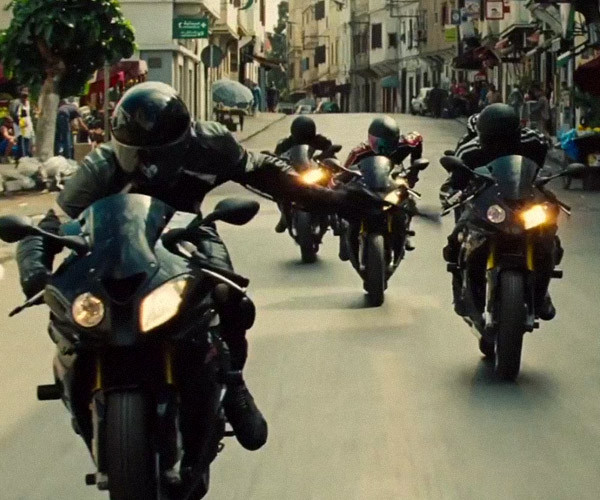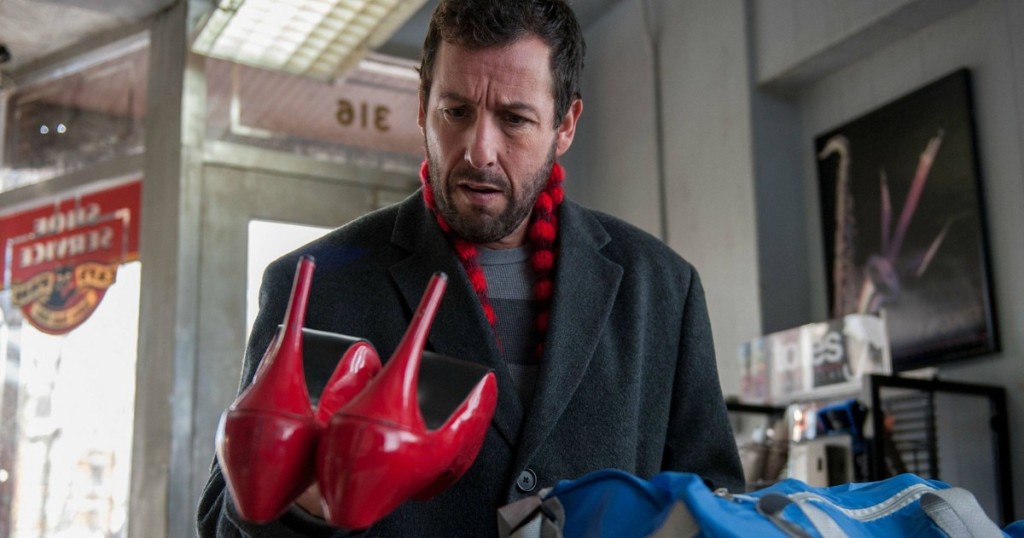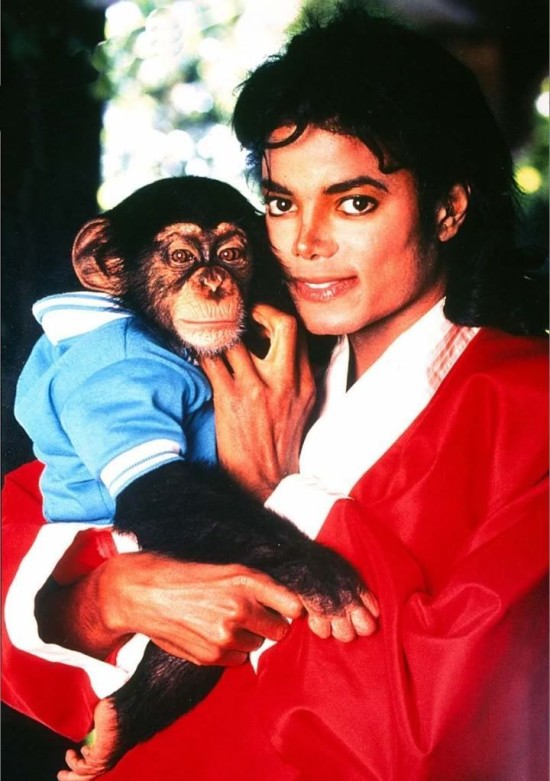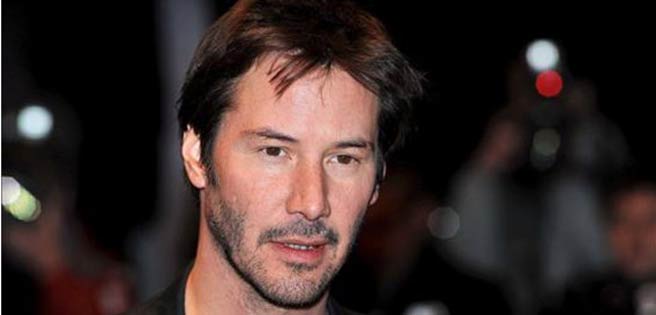Search Results for: James bond
Today we ask, why isn’t Ethan Hunt as popular or as memorable as other major franchise characters?
Genre: Action
Premise: Tom Cruise does action.
About: Tom Cruise continues to take risks, this time betting on Christopher McQuarrie to direct his latest Mission Impossible film. McQuarrie has become a sort of muse to Cruise, and vice versa. Even when he’s not directing Cruise (on such films as Jack Reacher), he’s often fixing up a script he’s working on (Valkyrie, Edge of Tomorrow). But with this being McQuarrie’s first HUGE directing assignment, the screenwriting Oscar winner chose to leave most of the writing duties to hot up-and-coming writer, Drew Pearce (Iron Man 3, Sherlock Holmes 3). Not sure why McQuarrie still got final credit but, hey, welcome to Hollywood, Drew. The film surprised many box office analysts this weekend by breaking out of the anticipated 40+ million bracket and pulling in 56 million bucks. Cruise Control is back!
Writer: Christopher McQuarrie (story by Christopher McQuarrie and Drew Pearce) (based on the television series by Bruce Geller)
Details: 130 minutes
I don’t know what it is about the Mission Impossible movies. I seem to enjoy them while I’m watching them. But literally less than an hour after they’re finished, I’m forgetting which scenes were part of which films. Was the helicopter-train chase in the first or the second film? Was the highway-bridge drone attack scene in the third or the fourth film? Mission Impossible seems to inject some sort of stealth forgettability into each incarnation.
And that’s not good with how crowded the action space has gotten. You’ve got your James Bonds, your Jason Bournes, even your Fast and Furiouses. So why doesn’t Ethan Hunt measure up to a Bond or a Bourne? I have some theories on that which I’ll get to later. But to Cruise’s credit, he seems to realize this as well, and this time out, he was looking for any way to get a leg up on his competition.
So we get the much publicized opening scene where Cruise ACTUALLY held onto the outside of a plane while it took off. No CGI. No tricks. It’s really a 53 year-old actor outside of a plane as it’s taking off. Color me SHOCKED then when I’m sitting there in the theater, prepping my popcorn tub with the perfect ratio of peanut butter M&Ms to popcorn kernels, getting ready for this monumental moment, and the shot lasted all of 5 SECONDS LONG! I don’t know if I was disappointed or just dumbfounded.
Here’s a shot that lasted only five seconds. It easily could’ve been done just as realistically with basic movie trickery. AND, the one thing nobody’s talking about, THE SCENE DIDN’T EVEN NEED TO BE IN THE MOVIE! It was clearly written in there specifically to give Cruise a chance to do this insane stunt.
All of this points to Cruise specifically doing this as a publicity stunt to sell the movie. And this means – which I can’t believe I’m writing – Tom Cruise RISKED HIS LIFE just to promote this film. Take that Vin Diesel. You ain’t jumping on planes. Need more make-up on your forehead wussy boy?
But seriously. That is either really impressive or incredibly dumb depending on who you talk to. But it did net MI:5 (I think we’re on 5, right?) a 56 million dollar weekend. Which, while not Bourne 3 (70 million), Skyfall (87 million), or Furious 7 (147 million) numbers, it’s still pretty solid.
MI:5 involves a twisty-turny plot that basically goes like so. Ethan Hunt (Tom Cruise) is trying to find this evil organization known as the “Syndicate.” He meets this shady mystery agent named Ilsa who helps him. Meanwhile, Ving Rhames and an out-of-nowhere hilarious Jeremy Renner, are trying to keep Ethan’s location a secret from the CIA, who want to disband the Mission Impossible Force. They all eventually meet up together, however, and mission impossible their way into the Prime Minister’s lair to stop this “Syndicate” business once and for all.
Okay, so, was this any good?
What’s unique about Mission Impossible is that Cruise seems to be approaching it from the old school way of filmmaking, which is to sit down, think up a bunch of cool set pieces (hanging on planes, riding on motorcycles) and then build a script around that.
That USED to work. I don’t think it works anymore. If you look at these other much bigger franchises, they’re building involved and continued storylines into their franchises. Their movies aren’t one-offs. They’re connected. And, as such, they feel less vapid. They feel like less of a roller coaster ride and more like full-on stories. Like the things that the characters do actually matter.
You’ve seen that lately with Bond, which has become more story-driven. You see it with huge hits like The Hunger Games. The Marvel Universe is interconnected. Bourne. The next round of Star Wars. The one exception is Fast and Furious. Their movies feel like standalone films.
But here’s the difference between Fast and Furious and Mission Impossible. THE FAST AND FURIOUS CHARACTERS STAND OUT. From Dominic to Brian O’Connor to the whole car-stealing team. Those guys are memorable identifiable characters.
Mission Impossible, however, still feels like you’re watching Tom Cruise. And again, this is a throwback mentality to the star-driven days where people used to show up just to see their favorite movie stars do crazy shit.
That’s not happening as much anymore. The success of franchises like Harry Potter and The Hunger Games and Avatar, and all those films I mentioned above, prove that people are coming to the theater to see characters and stories.
Never was that clearer than half-way through “Rogue Nation” when I asked myself, “Who is Ethan Hunt?” I don’t know! What does this guy stand for? What does he represent? What kind of person would his best friend call him? I know James Bond is a debonair playboy who confidently gets the job done. I know Jason Bourne is the amnesiac screwed over by his former organization who now has a chip on his shoulder. I even know Dominic Purcell is a family-first guy who will do anything for his friends.
Who is Ethan Hunt? Is he the guy who will always do the “impossible” thing that nobody else will do? Is that supposed to be his identity? I don’t know. To me it seems more like he ends up in those situations than seeks them out. Which makes his character even harder to pin down.
And I truly believe this factors into the box office. People don’t know who Ethan Hunt is supposed to be. So it comes down to, “Do you want to see Tom Cruise this weekend?” And the publicity of the airplane stunt got in enough articles that people decided, “Yeah, sure.” And I was one of them! I plunked down my money too. So kudos to the whole Mission Impossible team for pulling that off. But I’m definitely going into the next film more skeptically. I don’t want to watch yet another standalone adventure that has no connective tissue with anything that happened before it.
As for the rest of the script, I’ll say this. While it was your standard, “He’s got the data drive with the secret on it and we need to chase him all over the world to get it” storyline, unlike previous incarnations of Mission Impossible, the writers were more committed to helping you keep up with the plot.
I remember watching Mission Impossible 2 and they clearly didn’t give a shit about making sense. The plot points here have actually been thought through. And on top of that, they actually took the time to remind you what those plot points were.
I call this “hand-holding” and it’s SUPER important during complicated plots. This is even MORE important when you have a lot of double-crosses and twists and turns. I have seen many an amateur screenwriter leave their reader behind as they’ve assumed the reader knows just as much as they do, despite the writer giving us barely anything to go on.
There seemed to be a handful of scenes in MI:5 where one character reminded another character what they were going after. “We need to get [x] from [Frank] before he leaves town or he’ll disappear forever.” A lot of writers are scared to include these moments in fear of being deemed an “Exposition Eddie.” But when the plot’s complex, the reader/viewer appreciates them.
Unfortunately, despite all the money on the screen (and there really were some cool moments – I liked the motorcycle chase), I just couldn’t connect with the film. Due to the “non-continuous-story” approach of the franchise, I felt like it was going to dissolve into sand the second I left the theater. And that’s kind of what happened. The third act is already slipping through my fingers….. :(
[ ] what the hell did I just watch?
[x] wasn’t for me
[ ] worth the price of admission
[ ] impressive
[ ] genius
What I learned: Your main character has to have an identity. He has to represent something that’s clear and identifiable. It’s very common in an action movie to just generalize the main character as ” the action star.” But you can’t treat him that way. As you’ve seen from the above examples (Bourne, Dominic, new Bond), adding history and an identity go a long way. Go ahead and study all the classic movie characters who have stuck around for a long time and you’ll see this is the case. If you want proof, go to the most popular character in movie history: Sherlock Holmes. I’m sure every person here can tell you exactly what kind of person Sherlock Holmes is. Can you do the same for Ethan Hunt?
Note: The Scriptshadow Newsletter is coming TONIGHT. So check your spam and promotions folders to make sure you get it. I’ll be reviewing THE HOTTEST SPEC in town, which just sold, and also offer a few goodies about The Scriptshadow 250 Screenwriting Contest. If you’re not signed up already, you can do so here.
So this past week I’ve been thinking a lot about Sony. Not too long ago, Sony was the number one studio in the world. With franchises like Spider-Man, Men in Black, and Bond, it looked like they could do no wrong. Now, they’re trailing behind mini-studios like Lionsgate. Their biggest film this year has been Paul Blart: Mall Cop 2, which made 70 million dollars. In comparison, Universal’s number 1 movie, Jurassic World, made 600 million dollars. And don’t get me started on worldwide grosses.
The obvious question, then, is, “What went wrong?” Well, they made a bunch of bad movies that nobody cared about. That’s what went wrong. So how do you fix it? Sure, us backseat studio heads love telling studios how they’re raping cinema by greenlighting too many sequels, superheroes, and remakes. But what would we do differently? What would we do if we had TOTAL POWER to choose Sony’s slate?
As I asked that question, I began to realize just how important screenwriting is. Because while a lot of people will tell you that the key is great IP, the hidden ingredient is screenwriters who know how to craft a good story. I know, I know. I have to say that since I run a screenwriting site. But think about it. While IP is definitely important, Sony’s proven that it’s hardly full proof.
It wasn’t long ago that Spider-Man was THE biggest property in the world. Even bigger than Batman! Yet I’d make the argument that the reason the last Spider-Man failed was because it was a total screenplay hack job. You watched the trailer and had no idea what the movie was about. And, in fact, that’s the same reason the original Spider-Man franchise (with Toby Maguire) fell apart. Because the third movie tried to cram too much shit into the story and the story couldn’t handle it.
So don’t tell me execution isn’t a factor in making a good movie. You can say what you will about Jurassic World being generic, but that movie knew exactly what it wanted to be. And it gave us a clear and concise story that audiences could easily follow.
It was somewhere around here that I had my come-to-Jesus how-to-run-a-studio clarity moment. To run a successful studio, your movies need three things.
1) Great IP.
2) Big concepts.
3) Larger than life characters.
If you look at every single major studio movie over the last ten years, they will have at least one of these three elements and usually more. From Marvel to Star Wars to The Hunger Games to Harry Potter to Shrek to Pirates of the Caribbean. IP. Huge concept. Larger than life characters. Movies that contain these three elements are what keep studios afloat.
After that, there’s a second tier of lesser-known elements that need to be in play. These won’t matter unless you take care of the first three elements. But once you have those in place, you must make sure these are there as well. They are…
1) Script execution (like we just talked about).
2) Directing execution.
3) You need to give a shit.
Now that last one might seem trivial, but I believe it’s the secret ingredient that either saves or sinks a film. Everybody involved in a movie, from the writers, to the actors, to the directors, to the producers, to the studio itself – THEY NEED TO CARE. If they don’t care – if they’re not extremely passionate about bringing that film to life – than that film will never come to life. Oh sure, some disembodied version of it will make it to the big screen. But it will be lifeless. And we’ll sense that. And we won’t go to see that movie as a result. It’s the reason Die Hard, once the biggest franchise in the world, is so awful today. Everybody knows Bruce Willis doesn’t care. And since he doesn’t care, no one else does.
And that’s why nobody showed up to Pixels (Sony’s major bet this summer). Adam Sandler embodies the “I’m not taking any of this seriously” mentality. There’s not an ounce of passion in that man’s body. He doesn’t realize that movies have gotten too big to succeed on this laissez-faire approach. Tickets cost too much. And audiences smelled that as the movie neared. And that’s why they didn’t show. Contrast that with James Bond. I’ve gone on record as not being a huge fan of the tuxedoed martini drinker. But I take one look at that Bond trailer and I can tell everyone involved wanted to make a good movie.
So what does all of this have to do with you? How does this affect you? Well, here’s the beauty of today’s realization. Of the six things that I mentioned a studio movie must have to be successful, YOU HAVE CONTROL OVER THREE OF THEM. You can write something with a huge concept, add a larger-than-life character, and execute the hell out of it.
And here’s where things get really fun. Any company in flux? Any business that’s failing? They need to take chances. What they’re doing isn’t working so they need to try something different and that’s why I believe this is the perfect time to try and write a spec for Sony. Mind you, they’re not going to pay attention unless you get the concept, the larger than life character, and the execution down. But if you pull those off, there’s a damn good chance they’ll buy your screenplay. Because they NEED YOU. They can’t make it without you. As is the case with all of these studios hanging onto the bottom rung (you know who you are).
And that’s exciting. Wouldn’t you say?
Is today’s script a spiritual sequel to yesterday’s entry? They’re both about bubbles. As long as we’re on the topic, David Lynch should ditch Saliva Bubble and direct this. It would be EPIC!
It’s finally here! The culmination of Weird Scripts Week! On Monday you saw us deal with James Bond and robot sharks. On Tuesday, talking cows. On Wednesday we went into the mind of a man living his own musical. Yesterday’s script was about spit. But today is truly the pinnacle of weirdness. Get the drugs out and enjoy…
Genre: Biopic
Premise: I told you I was saving the craziest for last. How ‘bout a biopic of Michael Jackson told through the eyes of his chimpanzee, Bubbles!
About: This script went out earlier this year, and while it’s got about as much chance of getting made as Uwe Boll does helming a Star Wars movie, it wins the “Oh I’ve gotta read this” premise of the year award. While writer Isaac Adamson doesn’t have a legendary list of IMDB credits, he’s far from a stranger to Hollywood. His first novel, Tokyo Suckerpunch, has been in development for years at Sony. If Allan Loeb’s Collateral Beauty is ending up number 1 on this year’s Black List like everyone is telling me it will (I still haven’t read it – saving it for when I can relax and enjoy), my guess is that Bubbles ends up at number 2.
Writer: Isaac Adamson
Details: 122 pages
Isaac Adamson, I don’t know who you are. But you’re a genius, my friend.
This is one of those ideas you and your screenwriting friends come up with at 3 in the morning after a night of drinking, laugh uproariously about, then after the laughter’s died down, you proclaim, “No, but really, what if I ACTUALLY wrote it?” And then everyone laughs and says, “Yeah, you should TOTALLY write it.” “Oh my God. Yeah. That would be hilarious!”
And then the next morning through the foggy haze, before you’ve emptied your loose change on three Sausage McGriddles, you remember your crazy premise about telling Michael Jackson’s story through his chimpanzee’s point of view and you grimace and say, “Was I bananas??”
Isaac Adamson must have put down the McGriddles because he not only wrote it, he committed to it. And really, that’s the only way to do it. When you come up with a gimmick premise, you quickly find that there’s nothing to really say past page 15. You’ve introduced the gimmick. What’s left to do?
If you want to extend an idea like that into feature length, you have to embrace and treat the characters like real people, with real problems and real conflicts. And with the exception of Bubbles’ thoughtful meanderings, that’s exactly what Adamson does.
“Bubbles” opens up with a voice over from Bubbles himself. It’s present day and Bubbles lives in a cage along with a number of other animals. He’s not thrilled about it, but as he explains to us in the coming pages, he’s not sure he prefers his previous life either.
Flash back to 1985, the height of Michael Jackson’s fame. Michael has just come out with Thriller, the biggest album of all time! And he wants more. He wants his next album to do the impossible – to sell 100 million records.
He also doesn’t want to be alone during that journey. When you reach that kind of fame, it’s difficult to find friends. This is usually where your family comes in, but Michael’s family, particularly his evil father, Joe, is more interested in using Michael’s fame to jumpstart their own careers than support and love their son/brother.
So Michael buys a monkey! Whereas Michael is childlike and simplistic, Bubbles is a cross between an overly-educated Oxford graduate and a Roman philosopher. He ruminates about Michael’s life choices with such voice over lines as: “Should I have been alarmed that the notion of myself as sovereign provoked such laughter from The King? Or that seeing me festooned in the regal accouterments induced only befuddled discomfiture from these hirsute gentlemen of New Jersey?”
Michael and Bubbles become fast friends, and Bubbles takes pride in that a man who everyone refers to as “The King” has made him his prince. We follow the two through Michael’s struggles to make that impossible 100 million copy album, and during that time, Bubbles, too, becomes a celebrity (particularly in Japan).
But things start to change when Michael moves into Neverland Ranch, a place where he’s finally free of his blood-sucking family. Neverland brings with it many children, distracting Michael from Bubbles. And when one particular child, Jordan Chandler, becomes Michael’s best friend, Bubbles feels like he’s on the outs.
When Jordan’s father (who happens to be a screenwriter!) threatens to sue Michael for molesting his child, Michael’s kingdom, as well as his friendship with Bubbles, unwinds to a point where it can never be salvaged again.
We always talk about how once you find your idea, or your subject, you need to find your angle. Your angle can take what’s, at face value, a generic idea, and bring it to life. I mean, imagine if this was just another Michael Jackson biopic. Adamson would be lucky if Lifetime requested it. By exploring Michael through the angle of his pet chimpanzee, we get a completely unique perspective of the pop star. What was once dull is now fresh. This was the first great choice Adamson made.
The second was to treat everybody here like real people. Once you treat your characters like real people, your reader will actually invest in them. This doesn’t work if you play everyone as a farce. This was my problem with yesterday’s script. Nobody in One Saliva Bubble was real. They were all goofy gimmicks, and therefore we could never get inside of them. For a short movie, gimmicks are fine. For a feature, though? If you’re going to ask someone to sit still for two hours? You need to give them something to invest in.
With that said, I was surprised how far Adamson went down this path. I was curious how he would treat the child molestation charges on Michael but he faces them head on – to the point where they’re the climax of the story (okay, that was unintended, I swear). And because we’d invested so much in Michael by this point – seen how everyone around him existed only to take advantage of him – we really cared about what happened next.
Bubbles the character is a mixed bag. His high-brow observations do get a little tedious at times, but more often than not, they’re fun. For example, when Michael leaves the house only to come back with bandages on his face, Bubbles assumes that his “King” must have gone off to battle, defending his kingdom and defeating his many foes.
And it’s not like he’s unconnected to the plot. His jealousy of the people who hang around Michael are what drive his actions, and it’s why (spoiler), in the end, he’s forced to leave Neverland Ranch.
My issues with “Bubbles” are tempered by the commitment to the idea, but I did have a problem with the script length. This is the kind of premise you want to get in and out of faster than a Hollywood and Vine escort. There’s an entire “Michael in the UK” section that Bubbles doesn’t even participate in that easily could’ve been excised.
I also wished there was more Joe. When you have any script that doesn’t fit nicely into a movie-like structure (which is the case with most biopics), a great villain can be a huge help. You get the audience so wound up about the antagonist and so obsessed with seeing his demise, that they don’t even notice the movie’s flying by. From everything I’ve read, Joe Jackson is a terrible person, especially to Michael. So I would’ve loved to have seen that conflict explored more.
This script will probably never sell and most definitely will never be made. But it does so much more. It shows Hollywood that you’re not afraid to think outside of the box. And while Hollywood loves its formulas, the people who work within it secretly pain for these new voices, for new ideas, for new angles. Those angles may never make it to the big screen, but those writers are admired and called upon again and again for potential writing assignments because they showed that they could go where other writers were too afraid to. So while Bubbles isn’t a perfect story, it’s perfect in its uniqueness, which is why I’d be an idiot not to call it impressive.
[ ] what the hell did I just read?
[ ] wasn’t for me
[ ] worth the read
[x] impressive
[ ] genius
What I learned: As simplistic as this sounds, if there’s one thing I’ve learned from this week, it’s that if you want to write something weird, utilizing animals in some unique way is a good place to start. Especially if you want to make the Black List, which thrives on celebrating weird stories. High-ranking Black List scripts The Beaver, The Muppet Man, and The Voices all focused on animals in some weird way. Add Bubbles to that list.
The weirdness continues. Today, we go back to the turn of the millennium to check out a script that was once considered to be one of the craziest in Hollywood.
Welcome to Weird Scripts Week! This week I’ll be reviewing odd scripts, odd ideas, and writing that’s just plain odd. It will all culminate Friday when I review the strangest premise I’ve ever reviewed on Scriptshadow. To check out yesterday’s shark-tastic entry, click here. Otherwise, slather yourself in Jake Gylennhaal selfies and prepare to milk some sluglines.
Genre: Weird
Premise: After a dying scientist creates a talking cow, a team of people decide to market her into the biggest thing since prime rib. That plan goes about as bad as you’d expect it to.
About: For those too young to know who Richard Kelly is, at one point in the early 2000s, he was the equivalent of, say, Nicholas Wending Refn, a writer-director with an edge to his work, a filmmaker whose every move inspired geeks to imagine what he’d come up with next. That buzz died down after the Donnie Darko director released Southland Tales, a sprawling tale that seemed to pack every genre known to man into a single movie. What’s become lost in the Richard Kelly lore is the fact that he did a lot of writing both before and after Darko, so he has quite a few scripts out there. Bessie was written a year before Donnie Darko came out.
Writer: Richard Kelly
Details: 116 pages (Valentine’s Day draft, 2000)
Oh yeah.
You knew we had to push the envelope with Weird Week. James Bond fighting robot sharks was pretty out there, but if we wanted to truly enter Kookoo Land, we needed a script and a writer so batshit bananas, I’d get calls from the local mental asylum asking me for the writer’s contact information. That moment has come, my friends. It’s time for Bessie, the walking-talking cow.
35 year-old manager Ron McKittrick is sick of managing the career of his Justin Bieber like star, Sebastian Knight, particularly after Sebastian is accused of raping a fan. A day after quitting, he gets a surprise call from an old friend who demands that he come up to Iowa. She’s got a surprise for him.
McKittrick begrudgingly heads to the land of baseball fields that talk to you, but anger turns to delight when he learns of the reason he was brought in. His friend introduces him to Bessie, a walking talking cow with the mental capacity of a 3rd grader and a special affinity for Ashley and Mary Kate Olson. McKittrick’s friend wants him to manage a team that will introduce Bessie to the world, and make billions of dollars in the process.
This team consists of Dominique, a culturally-agnostic music video director more pretentious than an all-night poetry slam, Katherine, a lawyer with a temper quicker than Uwe Boll after a failed fund-raising campaign, and Kimberly, an ugly fat teenager who McKittrick makes his personal assitant after she tells him that if he doesn’t, she’ll start hooking for cash.
“Team Bessie” hops in a tour bus and starts travelling across the United Sates. Unfortunately, there are a few bumps along the road. When Team Bessie gets in a diner brawl with a bunch of rednecks, the cops are called in and it looks like their moo-happy secret is going to be milked onto the 24 hour news cycle. That is until Bessie screams a high-pitch yowl that somehow makes all the locals pass out while keeping Team Bessie awake and fine.
As Team Bessie gets back on the bus, they start to wonder if Bessie isn’t keeping a few secrets from them. It doesn’t take long to figure out she is. It turns out Bessie can levitate things, telepathically talk to people, and oh yeah, might be Jesus Christ!
When the group finally gets to Hollywood, Bessie’s had enough. She drops the 3rd grade act and reveals that she’s actually the smartest person-cow in the world. She demands to speak with Mary-Kate and Ashley immediately or else she’s going to blow up Los Angeles or something. It’ll be up to McKittrick to come up with a way to stop Bessie, but as we all know, once it’s out, you can’t put the cow back in the barn.
I’m trying to think of a way to discuss this script productively. I’m not sure it’s possible though.
I suppose that with “Ted” having come and gone, a movie about a talking animal shouldn’t phase us. But this is nothing like Ted. Bessie is closer to the meals they used to serve me at college. You’d go down the cafeteria line, they’d put a bunch of stuff on your tray, and afterwards, you’d try to figure out what each dish was. Those were some tough times, I tell ya. I mean, the milk at our school was blue. BLUE MILK. How’s that for a cow reference?
If I had to guess, I’d say this is a satire. But of what, I’m not clear. People maybe? The universe? I guess it could be a satire about Hollywood and our obsession with anything that’s marketed to us, but it’s just so damn weird, I’m tempted to take it at face value. Maybe this is just about a cow, who has the power of telepathy, and is the reincarnation of Jesus Christ.
Taking a step back, I did notice a few teachable moments. Whenever you write a script, one of your biggest goals is to give the reader something to look forward to. A destination. A culmination. If you’re not creating that desire within the reader, it becomes harder and harder to keep them engaged.
Remember when you were a kid in those endless family car trips? What did you keep asking? “Are we there yet?” “Are we there yet?” If you don’t keep reminding the reader where we’re going, you’re risking that same kind of agitation. It’s your job to keep reminding the reader: “Hey, this is where we’re going, this is how we’ll get there, and this is how long it’ll take.”
I’m not saying you have to provide exact times. But it should be clear how much closer we’re getting to our destination. So many writers keep their readers out of the loop and if we’re out of the loop, we can’t complete the task.
The opposite of this is something I call “drifting.” This is when you’re allowing the story to unfold, but not giving the audience any indication of where it’s going. Going back to the car trip analogy, it’s like asking your dad, “Are we there yet?” and hearing the response, “Anybody need to go to the bathroom? There’s a rest stop ahead.”
If you “drift” for too long, the audience/reader starts to lose focus. And loss of focus is the death-knell for any read. If that drift goes on for as little as five pages, the reader is done with your story.
So here, Team Bessie jumps into this tour bus but Kelly doesn’t immediately make it clear why. There’s a vague notion that we’re going somewhere with Bessie, and the marketing angle of Bessie is mentioned, but we’re still not clear why getting into this van helps achieve this goal. Are we going on some sort of 19th Century presidential campaign, where we go from town to town, introducing Bessie? I don’t know. Nobody explains it to me.
I get on writers about this all the time but it’s REALLY important. Too many writers are obscure when it comes to WHAT their characters are doing and WHY. That’s fine if you’re creating a deliberate mystery (“What’s the smoke monster?”). But if we’re talking about nuts-and-bolts story beats, you got keep us in the loop!
By the time we figure out we’re going to Hollywood to announce Bessie to the world, it’s way too late in the story. By that point I’d drifted off into several daydreams. One of which involved a talking moose named “Gerald” who had the ability to teleport.
Compare the differences between Raiders of the Lost Ark and Kingdom of the Crystal Skull. Look at how BIG of a deal was made of the Ark in Raiders (heck, it’s right there in the title!). So we’ve got something to look forward to right from the get-go. The importance of the Ark is reinforced a dozen or more times throughout the script, making us only more obsessed with reaching the destination. Imagine if the Ark had only been mentioned in a single scene leading up to the climax. Do you think our anticipation for what was in the Ark would’ve been nearly as obsessive? Of course not.
With Crystal Skull, we’re not really sure what we’re after. At first it’s a crystal skull, but that seems to be a small piece in a much bigger murkier puzzle that only gets less clear the further into the movie we go. You could see a bit of this in Tomorrowland as well. We knew we were trying to get to Tomorrowland, but we didn’t really know why, and after not knowing for so long, we just got bored and checked out. This could’ve easily been solved had the writer tried harder to keep us in the loop.
Having said all that, Bessie probably isn’t a movie that should be broken down via conventional methods. In classic “Weird Week” fashion, it creates its own rules, and you either buy into them or you don’t. Heck, you’re talking to a guy who thought Birdman was a pretentious taxidermy experiment gone awry. And there are a lot of parallels between Bessie and Birdman. To really get a feel for this script, you should check it out yourself, which is why I’m including a link. Read it and let us know how you feel!
Screenplay link: Bessie
[ ] what the hell did I just read?
[x] wasn’t for me
[ ] worth the read
[ ] impressive
[ ] genius
What I learned: Every screenwriter should write this kind of script once in their career – a script where you throw logic and form and rules out the window and let your instincts and imagination guide you. I’ll be honest with you. 99% of the time the end result will be disastrous. But doing so will teach you to TAKE CHANCES, to BE A LITTLE CRAZY, and to GO WITH YOUR GUT. And you’ll need those muscles every once in awhile if you’re going to be a great writer.

I hope you’re working hard on your Scriptshadow 250 entry. As of this moment, I’m allowing you to take a break to weigh in on yet another batch of…. AMATEUR OFFERINGS!
Title: Insatiable
Genre: Horror
Logline: When a law student’s girlfriend mysteriously vanishes from a truck stop diner, he suspects a shady trucker is to blame. But as he races to save her life, he discovers that the only thing more terrifying than her captors is the reason she was taken.
Why You Should Read: I need the help of the ScriptShadow community! I like scary things and enjoy a good horror film. I’ve been writing for quite some time and have advanced in some of the more well known contests including Nicholl. INSATIABLE was a semifinalist in Austin in 2011. A revised version was a finalist in ScreamCraft last summer and a semifinalist in Page. It has received some positive feedback, yet here it sits on my laptop. My question is this — is the story worthy of a movie? Can it get over the hump? Is the script worth revising or should I consider it a building block, leave it on my laptop, and move on? Please help!
Title: Hell Singers
Genre: Action/Horror
Logline: Victor Kalas and Chris Sheridan are Hell Singers, members of an elite secret service that uses scientific precision to quietly eliminate vampires in New York City. When Chris and his fiancee are attacked and turned, he sets out on a vengeful quest to find the vampires responsible, while Victor is hot on his tail with a direct order to kill him.
Why You Should Read: Assuming you’re still reading this after getting past the word “vampires” in the logline, Hell Singers is like a James Bond film set in the vampire subgenre, with a hint of noir. It’s pretty cool, why not give it a shot?
Title: Three or Out
Genre: Dark Comedy
Logline: In the final days of a yearlong deadline to either improve his life or end it, a sheltered mama’s boy, with nowhere else to turn, appoints a would-be criminal as his new life coach.
Why You Should Read: March 9, 2012, a day dubbed as “the Jai Brandon experiment,” Carson reviewed a script of mine titled, “The Telemarketer.” — When I originally wrote that screenplay, I thought “entertainment value” outweighed plot, structure, “rules,” or anything else you want to throw out there. I was a screenwriter with all of 18 months on the job and thought I had this craft figured out. I was confident in my ability to entertain, though I never made claims that The Telemarketer was “better than every script sale out there,” or “better than some of the classics that have graced our movie theaters for years.” I wasn’t ever that clueless. However, I did think the story could hold my readers’ interest throughout.
Boy was I wrong.
The most memorable feedback, to me, wasn’t even about the script. What stuck with me the most were comments along the lines of “I put this down at page XX.” Or “I bailed after page XX.” It sucked to fail at the very thing I thought I could accomplish.
Since that time, I’ve read tons of screenplays and penned another unconventional script that never went anywhere. Enough is enough. I wanted to prove to myself that I had the discipline to follow the rules. As a struggling actor, I also wanted to create a story that would be relatively easy to produce, with me as one of the leads. I decided to use the central idea behind The Telemarketer – as well as a couple of scenes from that script – and write a dark comedy called Three or Out. Hopefully this time I succeed in accomplishing what I failed to do earlier: hold my readers’ interest with a compelling and conventionally structured screenplay.
Title: The Shadow
Genre: Action/Crime
Logline: A medical student busts a hit man known as The Shadow out of the hospital to help her get revenge on the man responsible for her sister’s death.
Why You Should Read: I’m a Canadian author and screenwriter, and dedicated cinefile with a affection for horror, science fiction, action and crime dramas. I’m influenced by filmmakers such as Luc Besson, Tony Scott, David Lynch, Robert Rodriguez and David Cronenberg, and bow down to the screenwriting awesomeness of people like Quentin Tarantino, Diablo Cody, John Logan, the Coen Brothers and the one-and-only Shane Black.
The Shadow is one to read because it showcases a female lead that is both smart (she’s a doctor!) and bad-ass(she get trained by a stone-cold hit man!), and uses both to extract revenge for a transgression NOT motivated by a personal sexual assault (let’s face it this is overdone and in most cases simply exploitive) or lost love. There’s a lot of blurring between the “good” and “bad” guys, and an action-fuelled examination of the many layers of grey that people have to work through in terrible situations without betraying their personal morals or losing their humanity. Enjoy!
Title: Heart Storm
Genre: Action/Adventure
Logline: A tough nurse and a bumbling policeman have two hours to get a transplant heart across a chaotic city as a hurricane makes landfall around them.
Why You Should Read: This is my latest script and it’s a big budget blockbuster of the kind that we’ve been debating on Thursdays. I challenged myself to sum it up and ended up with, “Get a heart through a hurricane.” That sounds like fun to me. I believe this is original enough to have a chance at getting made, and if the people who say that’s impossible are correct, then I’m happy to stand by this script as a sample. Thanks.








